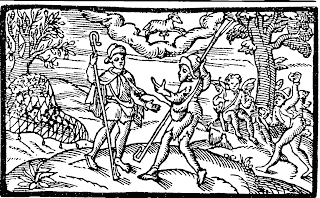The
Soul of the Cultural Body
The deepest problems of modern life derive from the claim of individuals
to preserve the autonomy and individuality of their existence in the face of
overwhelming social forces, of historical heritage, of external culture, and of
the technique of life. The fight with nature which primitive humanity had to
wage for its bodily existence attains in this modern form its latest
transformation. The eighteenth century called upon humankind to free itself of
all the historical bonds in the state and in religion, in morals and in
economics. Human nature, originally good and common to all, should develop
unhampered. In addition to more liberty, the nineteenth century demanded the
functional specialization of humans and their work; this specialization makes
one individual incomparable to another, and each of them indispensable to the
highest possible extent. However, this specialization makes each person more
directly dependent upon the supplementary activities of all others. Nietzsche
sees the full development of the individual conditioned by the most ruthless
struggle of individuals; socialism believes in the suppression of all
competition for the same reason. Be that as it may, in all these positions the
same basic motive is at work: the person resists being leveled down and worn
out by a social technological mechanism. An inquiry into the inner meaning of
specifically modern life and its products, into the soul of the cultural body,
so to speak, must seek to solve the equation which structures like the
metropolis set up between the individual and the super-individual contents of
life. Such an inquiry must answer the question of how the personality
accommodates itself in the adjustments to external forces.
— George
Simmel (born March 1, 1858)
A Still More Perfect Day
When the Roman went into the Holy of Holies in the Jewish Temple, he
found there no image of deity, and to him the shrine was empty. And yet that
shrine was the symbol of a nobler God than any of which the Pantheon could
boast. And there are some who scorn our spiritual faith which hesitates to
speak God's name or express His nature in a form of words. But to us, on whom
has dawned the vision of boundless realms of progress and the ideal of
unattained perfection, God is the divine Presence which besets behind and
before, the Life of our lives and the Soul of our souls; and Immortality
gathers up into one conception the intimations and hopes of a glory yet to be
revealed, of vistas of future beauty and harmony for which we strive, seeking
after every deepening twilight for a still more perfect day.
— Frank Walters (1845-1908)

No comments:
Post a Comment